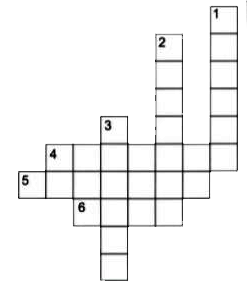Due to deficiency of phosphorus
the rate of protein synthesis is increased
the rate of protein synthesis is decreased
there is no effect on the rate of protein synthesis
the rate of protein synthesis initially declines but increases later on
The correct Answer is:2
Step-by-Step Solution:
1. Identify the Nutrient: The question specifies a deficiency of phosphorus. Phosphorus is a vital mineral nutrient for plants.
2. Understand the Role of Phosphorus: Phosphorus plays a crucial role in various physiological processes in plants, including energy transfer (ATP), photosynthesis, and the synthesis of nucleic acids and proteins.
3. Effects of Phosphorus Deficiency: When there is a deficiency of phosphorus, it primarily affects the plant’s ability to synthesize proteins. This is because phosphorus is essential for the formation of nucleotides, which are the building blocks of nucleic acids and are involved in protein synthesis.
4. Evaluate the Options:
- Option A: "The rate of protein synthesis increases." This is incorrect because phosphorus deficiency leads to a decrease in protein synthesis.
- Option B: "The rate of protein synthesis decreases." This is correct as phosphorus deficiency negatively impacts protein synthesis.
- Option C: "There is no effect on the rate of protein synthesis." This is incorrect; phosphorus deficiency does have an effect.
- Option D: "The rate of protein synthesis initially declined but increased later on." This is also incorrect; phosphorus deficiency consistently leads to decreased protein synthesis.
5. Conclusion: The correct answer is that the rate of protein synthesis decreases due to phosphorus deficiency.
- Option A: "The rate of protein synthesis increases." This is incorrect because phosphorus deficiency leads to a decrease in protein synthesis.
- Option B: "The rate of protein synthesis decreases." This is correct as phosphorus deficiency negatively impacts protein synthesis.
- Option C: "There is no effect on the rate of protein synthesis." This is incorrect; phosphorus deficiency does have an effect.
- Option D: "The rate of protein synthesis initially declined but increased later on." This is also incorrect; phosphorus deficiency consistently leads to decreased protein synthesis.
Topper's Solved these Questions
Similar Questions
Due to deficiency of which hormone, bones become weak in females
View SolutionThe deficiency symptom of phosphorus is
View SolutionThe deficiency symptom of phosphorus is
View SolutionDOWN
1. A disease caused due to the bite of a mad dog. (6)
(2) Kwashiorkor and marasmus are caused due to the deficiency of this food component.
3. A disease causing bleeding gums
ACROSS
4. A disease due to deficiency of vitamin D
5. Diabetes is caused due to deficiency of the hormone.
6.The deficiency of this mineral causes anaemia.

View SolutionChlorophyll synthesis will be largely affected due to deficiency of which of the following sets of elements?
View SolutionBrowning of cauliflower takes due to deficiency of which one of the following elements
View SolutionName the following:
The condition that a person suffers due to deficiency of one or more essential elements in food.
View SolutionMarasmus is due to deficiency of :
View SolutionKwashiorkar disease is due to deficiency of :
View SolutionAlbinism is due to deficiency of
View Solution
